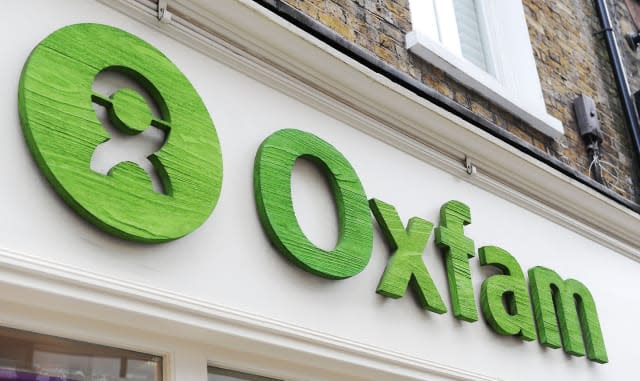Oxfam in numbers

Allegations of sexual misconduct among senior Oxfam staff have rocked the charity, which receives millions of pounds of public money.
The charity's annual review provides a breakdown of income and spending for Oxfam GB each year.
Here are the headline figures from the 2016/17 report.
£408.6 million
Oxfam's total income in 2016/17. The Government and public authorities provided 43% of the total, at £176 million, while donations and legacies made up the second largest proportion of the charity's income at £108 million.

£303.5 million
The amount Oxfam spent on charitable activities in 2016/17.
41%
The percentage of Oxfam's funds that went on humanitarian spending in the last financial year, which the charity describes as saving and rebuilding lives after disasters.
Development, described as helping "communities and families lift themselves out of poverty", made up 38% of spending.
21%
The remaining 21% was spent on support costs (10%), fundraising (8%) and campaigning and advocacy (3%).
Our emergency response team are distributing blankets, water & solar lamps to families displaced by the fighting south west of #Mosul, #Iraqpic.twitter.com/bKEo7T9kW1
-- Oxfam (@oxfamgb) February 28, 2017
31
The number of worldwide emergencies the charity responded to in 2016/17.
8.6 million
The number of people hit by conflict and natural disaster for whom the charity provided emergency support during the last financial year.
5,083
The number of staff employed by Oxfam as of March 31 last year.
£130,000 to £139,000
One member of staff earned between £130,000 and £139,000 in the year to March 31 2017, the highest bracket available.
The figure could be made up of a number of things including salary, taxable benefits and other allowances; for example, the charity pays towards the cost of education for up to three children where suitable free schooling is not available.
(function(i,s,o,g,r,a,m){i['GoogleAnalyticsObject']=r;i[r]=i[r]function(){(i[r].q=i[r].q[]).push(arguments)},i[r].l=1*new Date();a=s.createElement(o),m=s.getElementsByTagName(o)[0];a.async=1;a.src=g;m.parentNode.insertBefore(a,m)})(window,document,'script','//www.google-analytics.com/analytics.js','ga');ga('create', 'UA-72310761-1', 'auto', {'name': 'pacontentapi'});ga('pacontentapi.set', 'referrer', location.origin);ga('pacontentapi.set', 'dimension1', 'By Catherine Wyatt, Press Association');ga('pacontentapi.set', 'dimension2', '03e779ca-19d1-467b-b752-c05a940fcf27');ga('pacontentapi.set', 'dimension3', 'paservice:news,paservice:news:uk');ga('pacontentapi.set', 'dimension6', 'story');ga('pacontentapi.set', 'dimension7', 'composite');ga('pacontentapi.set', 'dimension8', null);ga('pacontentapi.set', 'dimension9', null);ga('pacontentapi.send', 'pageview', { 'location': location.href, 'page': (location.pathname + location.search + location.hash), 'title': 'Oxfam in numbers'});


